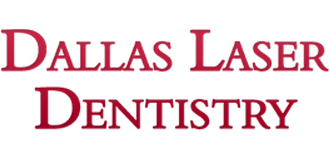
Mary Swift, DDS – General Dentist & Morgan Petty, DDS – General Dentist
Mary Swift, DDS – General Dentist & Morgan Petty, DDS – General Dentist
17
Oct
How is Plaque Involved with Gum Disease?

Improper or infrequent oral care, such as failing to floss, can lead to serious gum disease. When this occurs, those who suffer from this affliction may experience a variety of troubling symptoms that are often difficult to reverse without the assistance of a dentist. However, this problem is completely preventable, especially when dental patients learn about how plaque affects the mouth and gums and why removing it is a vital part of proper oral care.
What is plaque?
The main culprit of the development of plaque is bacteria, which forms in the mouth and on the teeth and gums after eating. When food particles are not removed by brushing and flossing, bacteria make use of the acids to grow plaque, and over time, this creates a film that may become more and more difficult to remove by simply brushing. Plaque usually causes a variety of problems, but few are as potentially dangerous as diseased gums, which can negatively affect gum tissue and teeth a like.
How plaque causes gum disease?
Eating and drinking cause plaque to form after each meal, especially when those meals are rich in sugar. With each meal, more plaque forms, and if it is not removed, it can harden into tartar, which daily brushing and flossing may not remove. Tartar contains acids that cause tooth decay and can begin to affect the gums over time, attacking the tissue and bone there. This can cause many issues over time, including:
– Swelling of the gums
– Bleeding
– Sensitivity and pain
Unless the plaque and tartar are removed, this type of gum damage may eventually cause such serious bone damage that the teeth begin to fall out. Individuals can prevent this issue by improving brushing and flossing techniques that remove plaque and protect the gums.
Safeguarding the gums from plaque
Those who have concerns about the health of their gums and the formation of plaque can talk to their dentist about how to formulate an oral health care plan to protect their mouth. They may want to cover several different factors including how to choose the right kind of brush, which toothpaste is effective at removing plaque, and how often to floss. Since plaque can be difficult to remove once it forms layers and hardens, brushing after each meal can prevent this and remove the acids that attack the teeth and gums.
Plaque along the gumline
When plaque buildup occurs, it tends to form along the gumline because everyday brushing may not be enough to remove it completely. Over time, gumline plaque hardens and begins to collect more and more bacteria, which may cause the gums to swell and bleed during brushing. This is usually the main cause of gum disease, and it usually grows worse when left untreated. Regular dental visits and consistent oral care can prevent this.
Frequently asked questions
Here are some answers to common questions about how plaque is involved with gum disease.
How long does it take for plaque to harden into tartar?
If plaque is left in the mouth for more than a few days, this is sufficient time for it to harden into tartar. During this time the risk for tooth and gum disease is elevated. When tartar forms it can typically only be removed by a dentist with a special scraping tool.
What sorts of foods and drinks contribute the most to plaque development?
Foods that are high in carbohydrates, especially sugars, tend to produce the bacteria that most lead to plaque when combined with saliva. Fruit, candy, soda, or anything with a high sugar content heightens the risk of developing plaque. If you want to reduce your risk of mouth problems, you can lessen the amount of sugary food and drink you consume.
However, it is not reasonable to try to avoid carbohydrates altogether. Potatoes, bread, and cereal all contain carbohydrates that can contribute to plaque buildup, though not as much as sugar. Regardless of how well you think you can avoid carbohydrates, you should always brush and floss at fewest twice per day.
Conclusion
Without proper oral hygiene, the development of plaque can cause tartar to form which can lead to problems such as gum disease. In addition to regular brushing and flossing, individuals who have concerns about diseases of the gums can discuss them with their dentist and learn about different methods of treating or preventing these problems. The better an understanding of what causes gum problems, the better the chance that people will take steps to keep them at bay.
Request an appointment here or call Dallas Laser Dentistry at 469 838 5292 for an appointment in our Dallas office.


